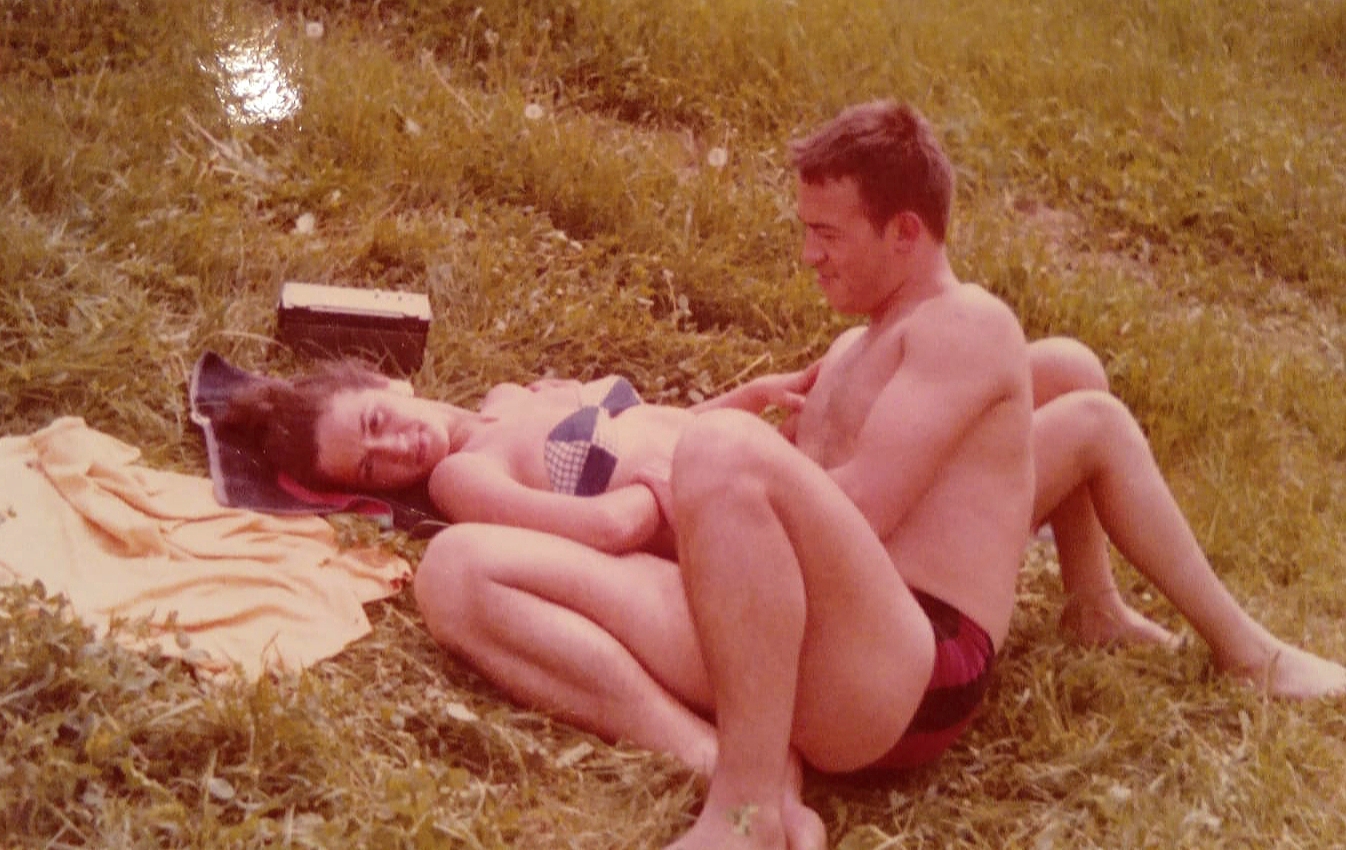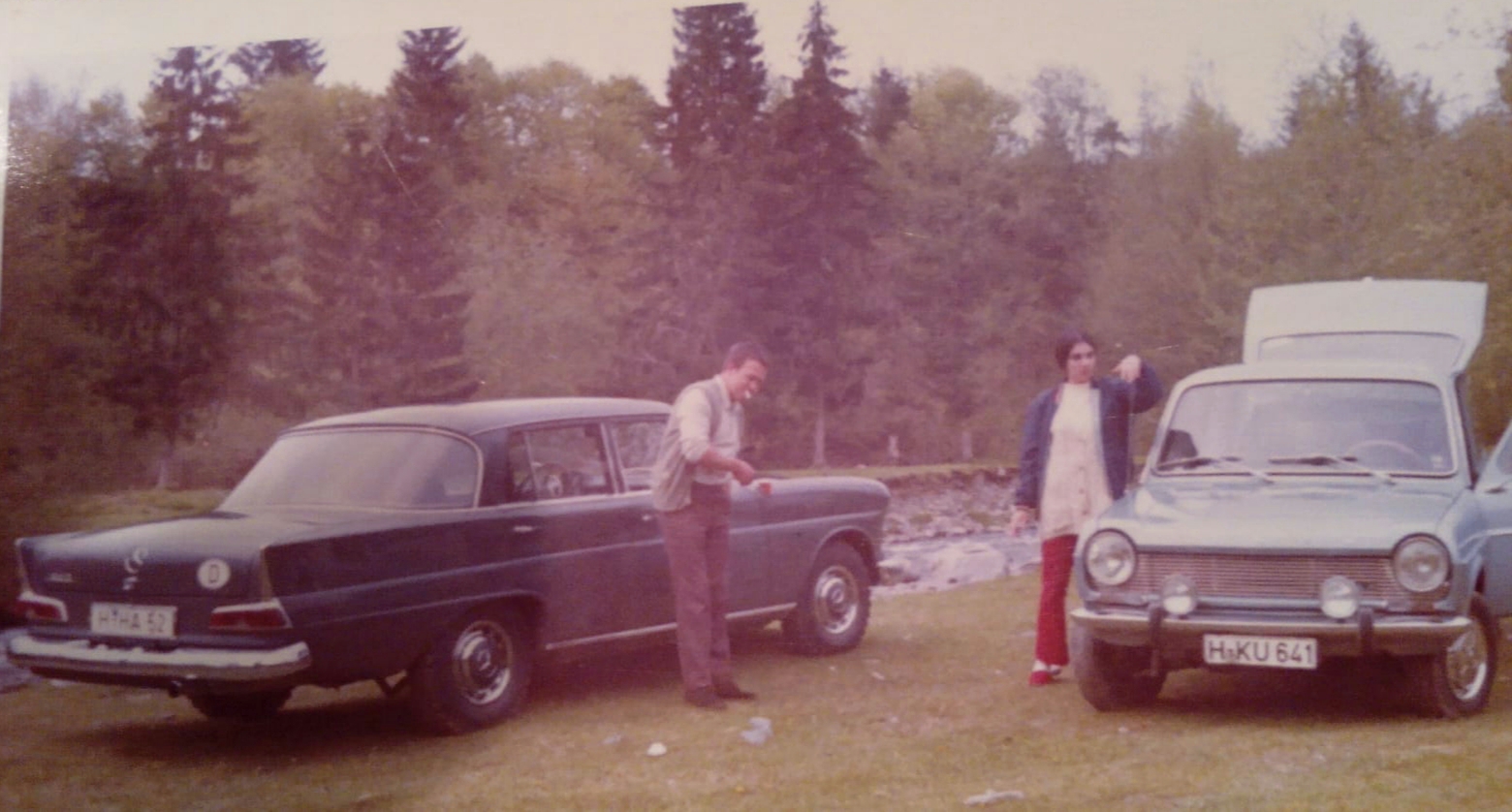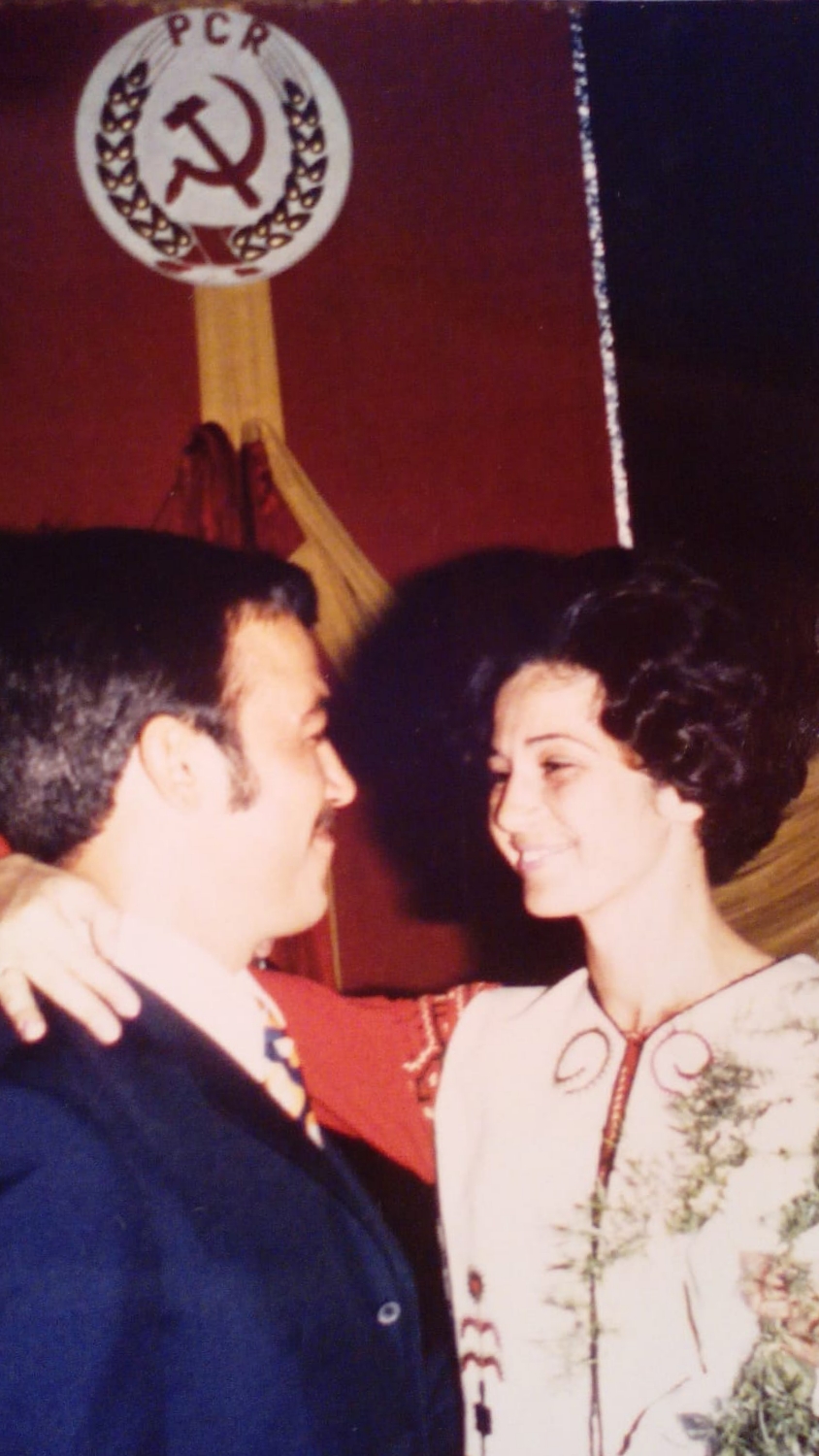

Diana* was born in 1944 in the small town of Salonta in nowadays north-western Romania. She studied Industrial Chemistry at the Polytechnic University in Timişoara. At the time when she met her future husband Klaas* from Western Germany, she was department head in a rubber company in Pitești. Klaas was sent by a German company to assemble machines there. In the beginning the two had very loose contact, because Diana was Klaas’ supervisor. But in 1970, the relationship between the two developed slowly. Diana’s bosses drove back to Bucharest every Saturday and always tried to be taken along by the Germans, who also wanted to go there. And once, when she wanted to visit her aunt in Bucharest, Diana’s bosses suggested that she join them. And the driver this Saturday was Klaas. At the beginning they could only talk in Romanian, which Klaas had learned in his previous job in Bucharest. She asked him if he could bring her back to Pitești on Sunday evening. He agreed and so the return trip to Pitești was the first time that the two were alone because Diana’s bosses had a meeting in Bucharest every Monday. During the ride, they talked a lot and started a bet. It was the football World Cup in Mexico and Diana insisted that Brazil would become world champion, while Klaas held against it.
In the end, Brazil won in the final against Italy with 4 to 1 and Diana therefore won the bet. As a reward she got a bottle of red wine from Klaas and invited him in return for dinner to her apartment, which she shared with a colleague. And that was when the love affair started between the two. They also did some trips together, which was not without any risks, because they always had to fear the watchful control of the Securiate employees and communist party members, from whom they had to hide their relationship. The Securitate was the secret police agency of the Socialist Republic of Romania and in relation to Romania’s population one of the largest secret police forces in the Eastern bloc.


Klaas first had to work on another construction site in Portugal and then came back to Romania for the company Pirelli in 1971 to build machines again. During that time, in June 1971, the two lovers became engaged. At the same time, they submitted the papers for marriage approval to the Romanian state apparatus. With the submission, Diana had to give up her job as department head, because she was supposedly a so-called secrets holder.
The only secret she could have revealed was that all the technology and machines they used in the rubber company were from Germany. It seemed more like a contrived reason to complicate the wedding and her planned emigration.


After a year, the marriage proposal was rejected. Klaas then came from his job in the USA and they went to an audience in the Romanian Ministry of Foreign Affairs. Diana was asked how she could have a clear conscience by leaving Romania, with the Romanian state investing so much money in her studies and training. She replied that she had been working for six years now and thought she had paid her debts to the state. Diana and Klaas had to wait another year and in March 1973 they finally got the marriage license. In June of the same year the two married each other in Romania and when she had adopted his family name, she also got a Romanian passport and could leave for Germany.
In 1975, Diana’s and Klaas’ son Markus* was born. This resulted in the absurd situation that Markus – like his father – was a German citizen on paper and Diana still Romanian. She always had to wait much longer than the two until she got a visa on the family trips abroad to Argentina, Venezuela and Mexico with her Romanian passport.
The German authorities informed her that she was able to get German citizenship after five years of residency. In 1978, exactly after these five years, she drove straight to the Romanian embassy in Cologne and submitted her renouncement of the Romanian citizenship. After several months of waiting, her expatriation was finally confirmed and she was able to go to the authorities in her new hometown Hannover and received German citizenship. With the German passport the last formal problem was eliminated and Diana could even continue to enter Romania, but from then on with a paid visa received at the border.
Fortunately, the situation in Europe and Romania looks a little better today, even though nationalist and anti-European forces are currently trying to reverse the positive achievements of the European Union like for example freedom of movement and labor migration.
*Names changed for privacy reasons
